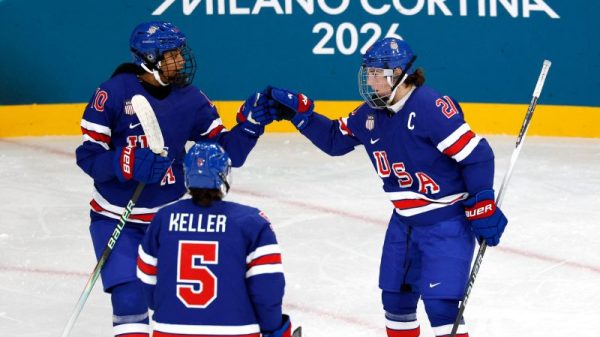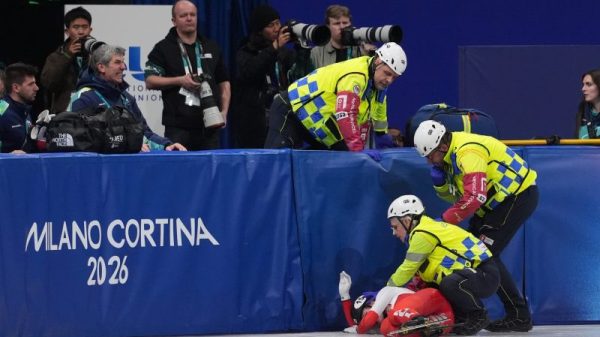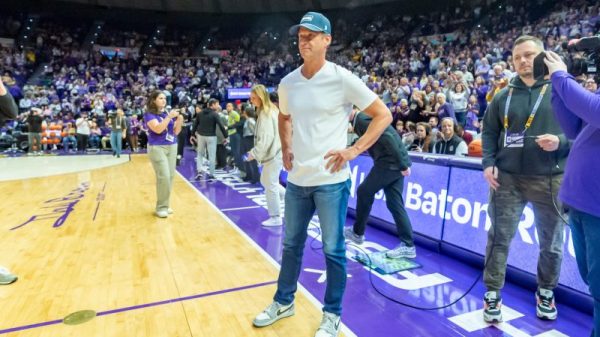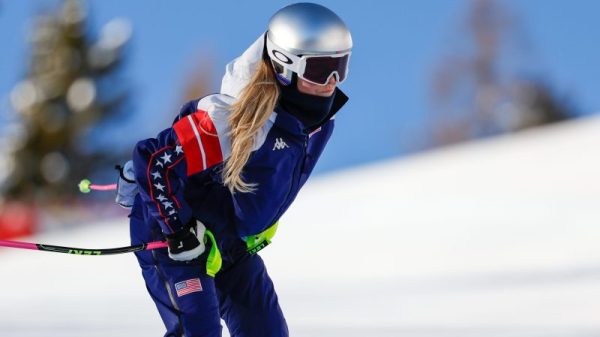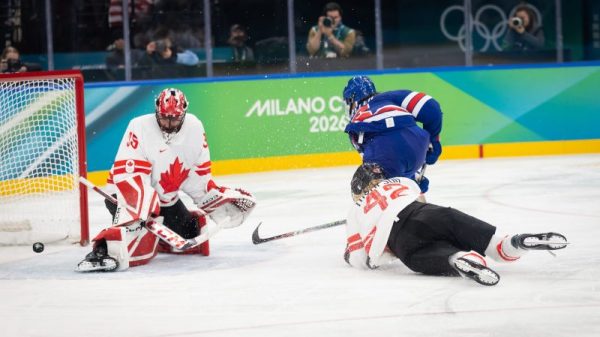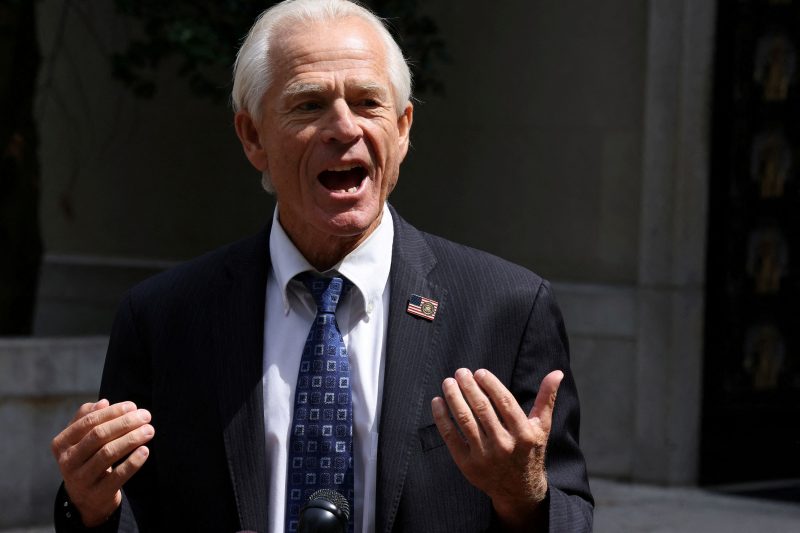A judge ruled Wednesday that Peter Navarro, a Trump White House adviser charged with criminal contempt of Congress, cannot argue to a jury that he was barred by executive privilege from providing testimony and documents to the House committee investigating the Jan. 6, 2021, attack on the U.S. Capitol.
Navarro, who has written and spoken extensively about his role in efforts to reverse former president Donald Trump’s 2020 election defeat, is set to go on trial in the contempt case next week in U.S. District Court in Washington. The charges stem from his refusal to comply with a subpoena issued by the now-disbanded bipartisan committee months before its televised hearings on the Capitol riot last summer and fall.
Wednesday’s ruling on the executive-privilege issue by Judge Amit P. Mehta was a blow to Navarro, denying him a potentially helpful trial defense against two misdemeanor counts of contempt, each punishable by up to a year in prison. Jury selection is scheduled to begin Tuesday. Navarro has pleaded not guilty.
The 74-year-old former trade and manufacturing adviser has continually asserted, without proof, that he defied the subpoena because Trump, in conversations with him, invoked executive privilege and instructed Navarro not to reveal any privileged information related to topics the committee was investigating.
The subpoena, issued Feb. 9, 2022, ordered Navarro to turn over a list of documents to the committee within two weeks and to appear for a deposition shortly after that. In refusing to comply, he told the committee in an email: “President Trump has invoked Executive Privilege in this matter. … Accordingly, my hands are tied.”
Since Navarro’s indictment in June 2022, Mehta has repeatedly cited a lack of evidence regarding the purported conversations with Trump, which Navarro said occurred after he received the subpoena. Navarro has produced nothing in writing from Trump, nor has Trump publicly corroborated his account.
“I still don’t know what the president said,” Mehta told one of Navarro’s lawyers at a pretrial hearing Monday, according to CNN. “I don’t have any words from the former president.” On the witness stand, Navarro tried to convince the judge that Trump had invoked executive privilege, but Mehta described his testimony as “pretty weak sauce.”
Although the judge took away his most viable defense argument — that he was compelled by Trump’s executive privilege not to testify in Congress — Navarro appeared undaunted following the hearing as he faced news cameras outside the courthouse.
“These are complex and important constitutional issues related to the separation of powers between the legislative branch and the executive branch,” he said. “This is probably going to the Supreme Court.”
After the select committee began investigating the Jan. 6 mayhem — in which mobs of Trump supporters stormed the Capitol while Congress was meeting to confirm Joe Biden’s presidential victory — Navarro was among four former White House officials who refused to obey subpoenas and were referred by the full House to the Justice Department for prosecutions.
One of the four, right-wing provocateur Stephen K. Bannon, a Trump political adviser who was chief White House strategist for the first six months of his presidency, was charged with two counts of criminal contempt of Congress for defying the committee’s demands for testimony and documents. The indictment in his case mirrored the one against Navarro, whose White House tenure spanned the entirety of the Trump administration.
In media interviews and in a book he wrote, Navarro has said he worked with Bannon on a plan to keep Trump in power by enlisting Trump loyalists in Congress to delay and eventually deny certification of Biden’s electoral win. In a letter accompanying Navarro’s subpoena, the committee chairman, Rep. Bennie G. Thompson (D-Miss.), said the panel “seeks documents and a deposition regarding these and other matters.”
Executive privilege is meant to protect the confidentiality of discussions between the president and his close aides.
Like Mehta, the judge in Bannon’s July 2022 contempt trial prohibited the use of executive privilege as a defense. Bannon, who left the White House in August 2017, had no official advisory role in the administration during the effort to overturn the 2020 election. With his legal defense reduced mainly to whether he understood the deadlines for answering the committee’s subpoena, a federal jury in Washington deliberated for just 2½ hours before returning guilty verdicts in his week-long trial.
Bannon, convicted of the same charges that Navarro faces, was sentenced to four months in jail and fined $6,500. He remains free pending the outcome of his appeal.
The U.S. attorney’s office in Washington opted not to take legal action against two of the four Trump officials who were referred for contempt prosecutions — former White House chief of staff Mark Meadows and communications chief Dan Scavino. Both had received letters from a lawyer for the former president directing them not to respond to subpoenas from the committee, citing executive privilege.
“Had the President issued a similar letter to Defendant, the record here would look very different,” Mehta wrote in January this year, when he denied Navarro’s motion to dismiss the contempt charges based on his purported conversations with Trump.
“Defendant has failed to come forward with any evidence to support the claimed assertion of privilege,” Mehta said in his January decision. “And, because the claimed assertion of privilege is unproven, Defendant cannot avoid prosecution for contempt.”
On Wednesday, the judge went further, ruling that Navarro cannot argue to the trial jury that a valid claim of executive privilege existed.
Even if Navarro had proof that Trump asserted executive privilege, the question of whether a former president can legitimately invoke the privilege, and under what circumstances, is subject to debate. Some legal experts contend that only a sitting president has the power of executive privilege — and the Biden administration has made its position clear on the Navarro subpoena.
In a letter to Navarro last year, the current White House Counsel’s Office said it had “determined that an assertion of executive privilege” in his case “is not in the national interest, and therefore is not justified.”
Spencer S. Hsu contributed to this report.






